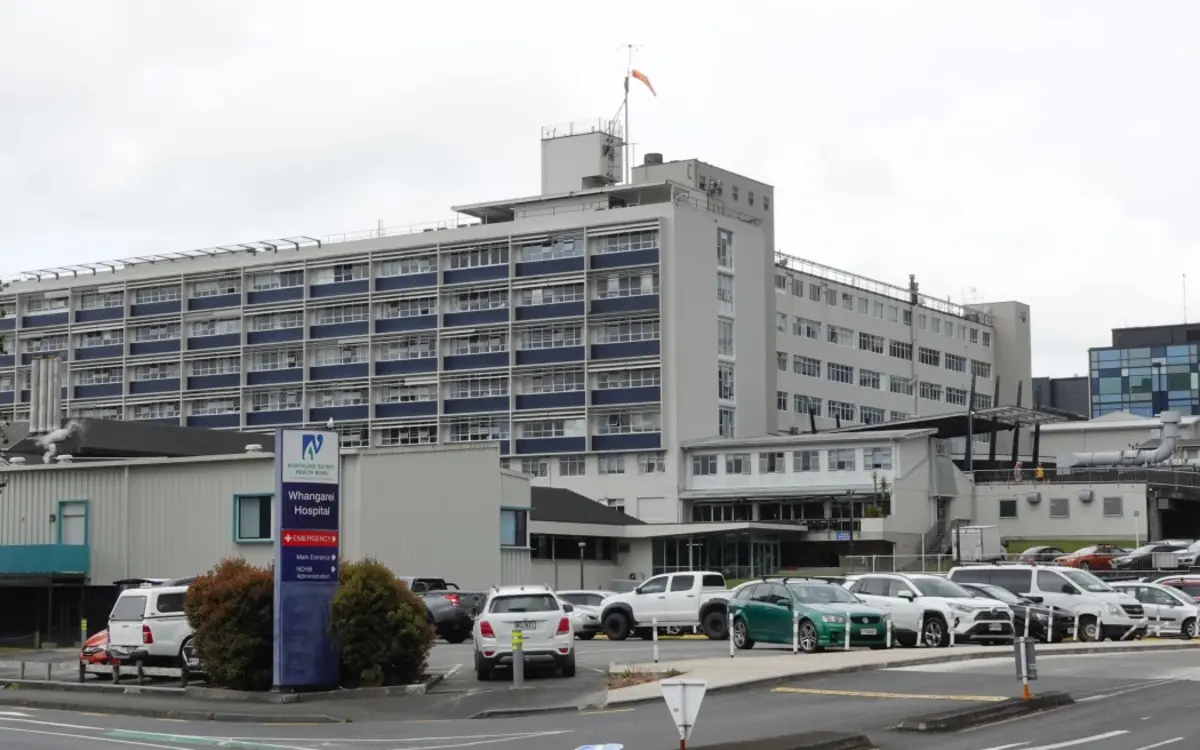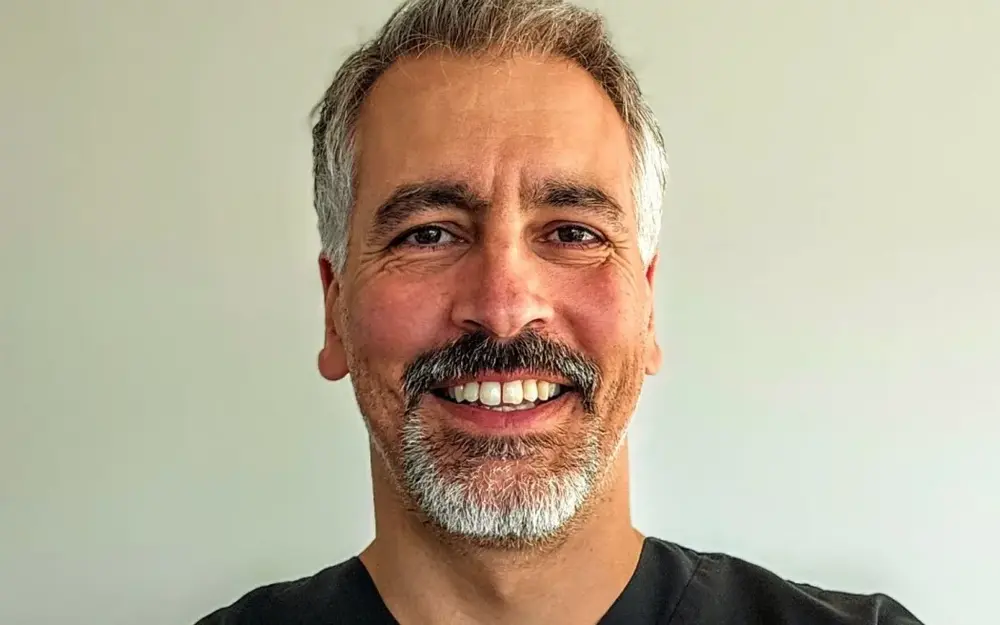Northland ED doctor Gary Payinda speaks out on dire state of Whangārei Hospital
RNZ
26 October 2024, 6:43 PM
 Doctors fear staff shortages at rural hospitals will increase pressure on Whangārei Hospital’s overcrowded ED. Photo: RNZ / Peter de Graaf
Doctors fear staff shortages at rural hospitals will increase pressure on Whangārei Hospital’s overcrowded ED. Photo: RNZ / Peter de GraafAn Northland emergency doctor says the health system is in a death spiral with woeful understaffing, budget constraints and leaky buildings - and the government's priorities are all wrong.
The Whangārei Hospital rebuild is officially in the red - meaning government officials have labelled it a project at significant risk due to insufficient funds.
It comes on the heels of the Dunedin Hospital rebuild facing significant budget cuts.
The Labour government rubber-stamped a $750 million stage one revamp of Whangārei Hospital in 2022.
The hospital - which was built in the 1950s - has a history of problems, including raw sewage leaking inside of walls, leaking roofs and lifts breaking down.
Read more:
- Health NZ not keeping up with hospital upgrades, documents reveal
- What's gone wrong with New Zealand's health system?
- How did Health NZ go from $500m of savings to a $1 billion hole?
Whangārei Hospital emergency doctor Gary Payinda told Checkpoint issues at the Health NZ facility had been going on "for years".
"We've been dealing with this for a long time, but things have really been accelerating in terms of the stresses on the system in the past year."

Dr Gary Payinda has worked at Whangārei Hospital for 17 years and has never seen facilities so poor. Photo: Supplied
Whangārei Hospital had not been "fit for duty" for the past 15 to 20 years, he said, with clinicians saying it was "far too small", and the ED the waiting room "lacks privacy and is unsafe".
They had been reduced to treating patients in back hallways and corridors, "which had never been a thing in the 17 years I've been here".
The corridor beds were designed for "overflow" situations, but were now being used regularly as the emergency department was often up to 200 percent capacity.
"That means you've got 32 patients in all of the rooms, cubicles, seats in the department. Then you've got another 32 people in the waiting room... [which] can't accommodate anything like that.
"Then you've got ambulances coming in on top of that and those patients have to go somewhere, and so they go in a back corridor ... this is a new and depressing thing for us."
Staff dreaded days when it rained in Northland, he said.
"It's depressing and unnecessary. It's inappropriate for a country like New Zealand to have a situation when it's raining outside heavily, it's raining inside as well, with water leaking through the ceiling tiles into the radiology department, captured in buckets."
The leaks were putting expensive equipment such as CT scanners and an MRI machine at risk, he said.
"This is stuff that we are better than. It doesn't have to be this way at all."
Even equipment past its use-by date could not be replaced, with the entire Northern region now competing for the same healthcare budget.
Managers were "dejected", he said, "because they know they'll get one to zero of the 15 things they need. They're worried because they work in these departments and they understand the problem".
When questioned by Checkpoint host Lisa Owen about delays to hospital developments, Payinda was scathing about the government's priorities.
"How come the government was able to find $16bn for tax cuts that mostly targeted the more well-off parts of our society and were able to immediately find $2.9bn to help landlords deduct their inter on their mortgages?
"How come that money they were able to find so quickly and the money to care for patients suddenly is gone?
"There's no money for it, there's no hope of money for it. It's galling. I could use stronger words, but it would be inappropriate."
Recently, Dargaville had been struggling with no overnight doctor. Doctor staffing shortages are an issue all over the North, he said.
"I've been here for 17 years and we've always been able to staff Dargaville... and then they cut the rates for these doctors that were helping out, in some cases by 40 percent.
"And the question is: are we going to accept this as the new normal?
"It did not have to be this way - this is an issue of priorities and there was money for other things. And we're just seeing the results of priorities, not of a lack of money."
Response from Minister of Health Dr Shane Reti
In a statement, Minister of Health Dr Shane Reti said planning for the wider Whangārei Hospital redevelopment was ongoing.
"We know how important hospital facilities are for local populations, including the people of Whangārei and wider Northland and I'm pleased work has been progressing.
"Earlier this year, I opened the new Kotuku maternity and paediatric block. The old paediatric block was then able to be converted into 30 new adult beds.
"Just last week Whānau House - the first stage of the Whangārei Hospital redevelopment project Pihi Kaha - was opened, and Health NZ is also finalising plans for the new Child Health Unit Tira Ora.
"Whangārei Hospital is just one of a number of complex pieces of health infrastructure the Government is currently working through.
"As Minister Bishop and I have very recently reinforced around the next steps for New Dunedin Hospital, ongoing oversight of costing is vitally important. Huge cost overruns there can't be justified when hospitals around New Zealand are crying out for maintenance, upgrades and new facilities.
"As Ministers, we are concerned that badly needed infrastructure upgrades to Whangārei, Nelson, Hawke's Bay, Palmerston North and Tauranga hospitals may be put at risk if New Dunedin continues to go so far over budget."
Health NZ response
In a statement, Te Whatu Ora head of infrastructure delivery Blake Lepper said it had completed Whānau House and the rest of the Whangārei redevelopment was in the design phase.
"We are taking additional time with the design to ensure the most suitable facilities can be built, and in a timely manner."
The rethink was "part of Health NZ's more streamlined, financially responsible approach to health infrastructure", the statement said.
"The focus of our work is ensuring that we are delivering a clinically safe and an operationally efficient campus at the end of each stage of the redevelopment. In addition, we are seeking to accelerate stages of the development so critical services become operational sooner."
This story was originally posted by RNZ News



